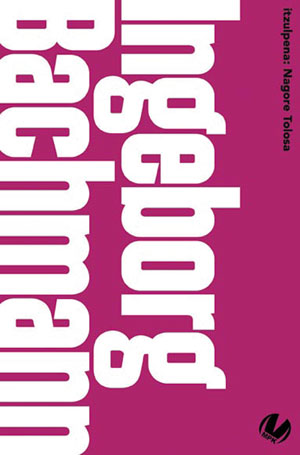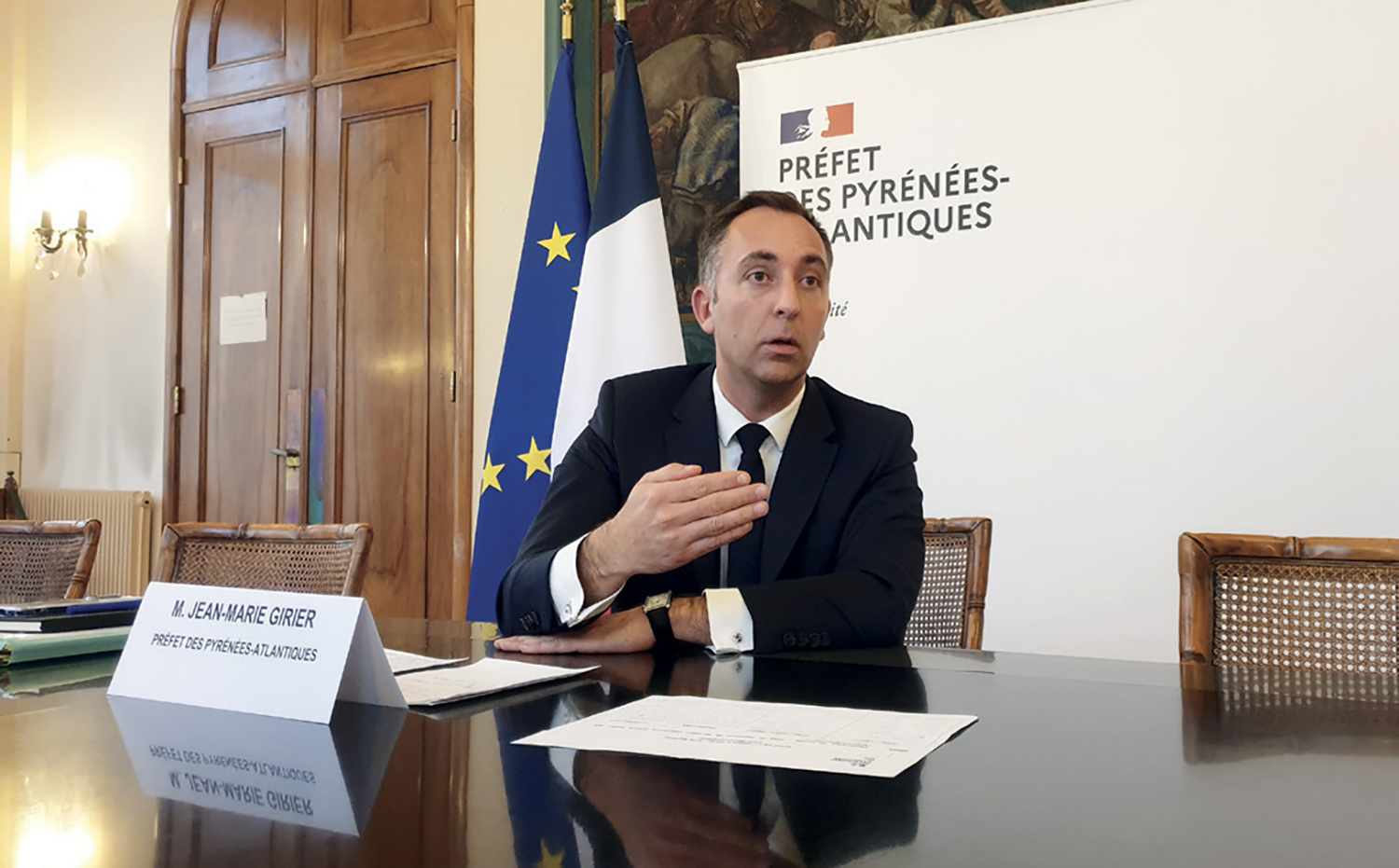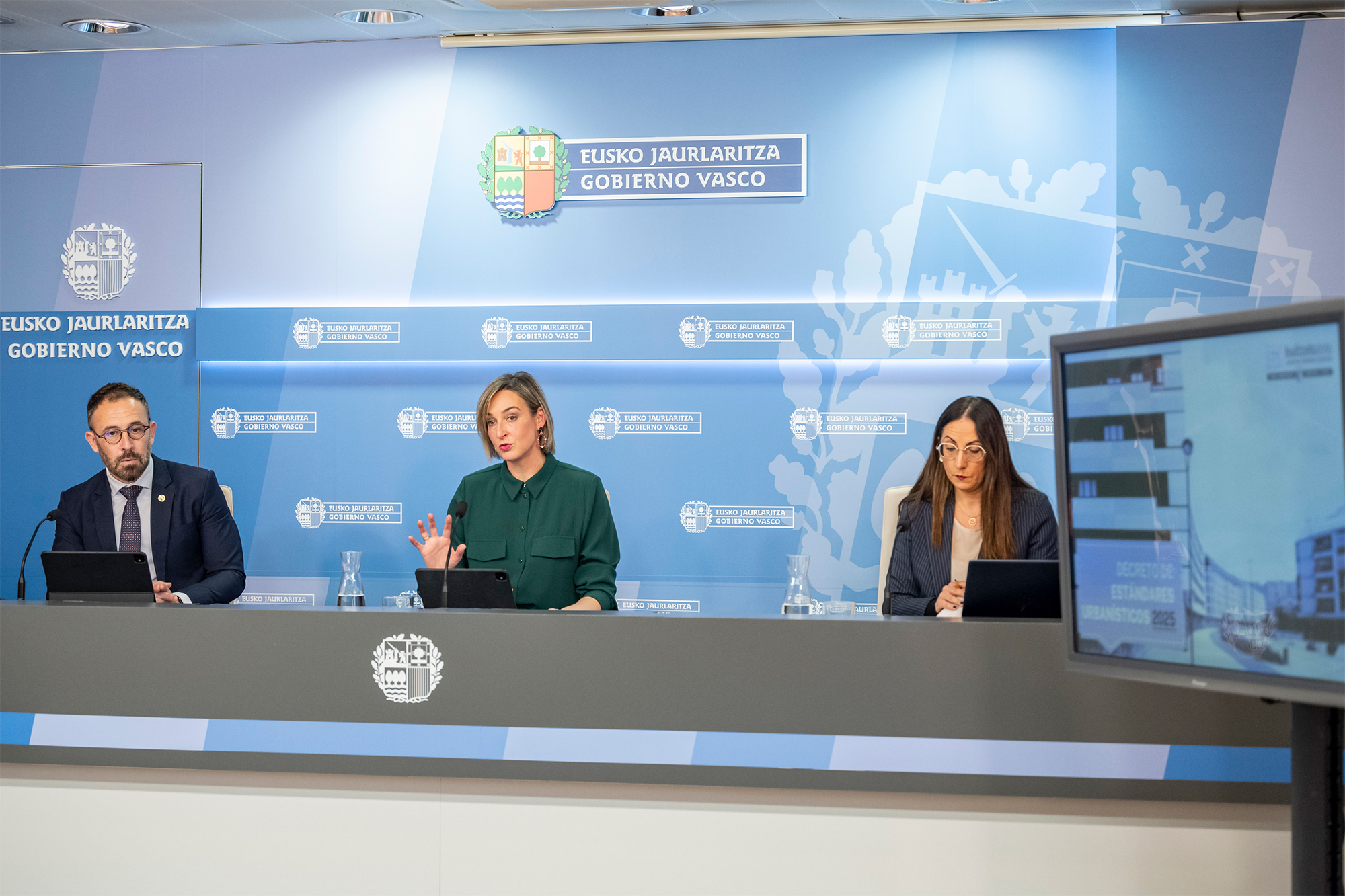Those high moments

The appeal of this poetic anthology by Ingeborg Bachmann (Klagenfurt, Austria, 1926 – Rome, 1973), with Nagore Tolosa, is in search. The poet exhausted his poetic coming in a few years, when he began to suspect that he knew how to write but had no need to write. Where the need to write comes from, what is the function of the poem, and even what can be the autonomous sense of language itself, is the stimulus of Bachmann, and others of the time.
The poems that can be read in themselves or reflected on the meaning of poetry are: “They have found tone, / and even tone, / indifferent sound limit, / acoustic barrier so alone / so alone, nothing / not come.” Ingeborg Bachmann’s work is also a poetic consequence of the ideological and literary crisis. It has the inertia of those who had to find something new, and at the same time it's profoundly stimulating. Here you can find the word of the rebel woman, who has revealed herself against the limits of language, who has grasped the importance of each word: “Strained in the thread of silence / blood, / I took you by the strongest heart.”
He developed his doctoral thesis around Heidegger, but he seems to be a follower to Wittgenstein. He is the representative of a generation who wanted to reach language for a given time, precisely, since the analysis of language. Not in vain, he lived the bitter string of those who faded in his words, the European tertiary wrapped in itself and silent. Beñat Sarasola defines this context in his preamble: “Most German post-war writers had to deal with an extreme situation. Not only because they had to physically rebuild a devastated country, but also because they had to find a new cultural meaning, after Nazism, when writing. Everyone had to answer the same question: How do you write to him after Nazism?”
How, then, to read this anthology without using the idea of silence in the head? Here the problem is literature. How to say things, I mean. As we are also the result of saying, words acquire a weight that they do not normally have: “In the night of the kidneys and the clubs / sorcerers / wet my feet, / to walk faster.”
In this mode of poetry, there are only images -- articulists and clubs -- out of time. In us they shudder by their sound, by their weight… in short, because we ourselves are the language and product of their use.
When Bachmann is mentioned, Rilke, Celan is mentioned. But as the reader will see in this book, it's much more radical, classic new, Bachmann's poetry.
Ingeborg Bachmann
Itzultzailea: Nagore Tolosa
Poemak
Susa, 2016
49 urte preso pasa ondoren, libre utzi dute Leonard Peltier AEBetako ekintzaile autoktonoa. Otsailaren 18 honetan heldu da bere senide eta lagunen artera 80 urte dituen preso-ohia.
In the Maszycka cave in Poland, remains of 18,000 years ago were found at the end of the 19th century. But recently, human bones have been studied using new technologies and found clear signs of cannibalism.
This is not the first time that a study has reached this conclusion,... [+]
Porzheim, Germany, February 23, 1945. About eight o’clock in the evening, Allied planes began bombing the city with incendiary bombs. The attack caused a terrible massacre in a short time. But what happened in Pforzheim was overshadowed by the Allied bombing of Dresden a few... [+]
On February 3rd, the time has begun to pre-enroll our children and young people in schools, and as every year we would like to remind you why we do not think it is a good idea to enroll them in religion. Last year we finished the article saying that “many of you will be... [+]
From the Association of Parents of the Instituto Arratia Small Tram we want to encourage reflection on the use of screens in the learning community.
Lately there is a lot of concern about the impact of screens on children and adolescents. This responsibility extends from... [+]























